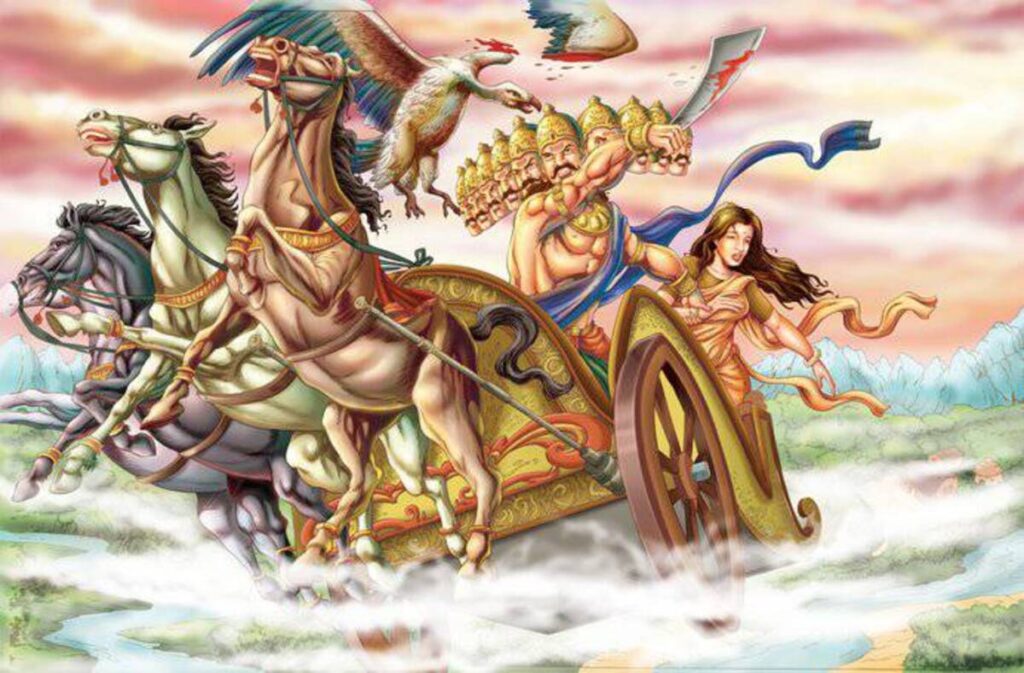Sawan Month 2024 Hindu calendar | The Month of Lord Shiva’s Blessings
Shravan month, also called Sawan, holds profound significance in the Hindu calendar, especially among followers devoted to Lord Shiva. During Shravan, every day is considered exceptionally auspicious. It is believed that Lord Shiva bestows special blessings upon his devotees during this month, granting them numerous boons.
Religious observances are a central focus during this time, with devotees often fasting, particularly on Mondays known as “Shravan Somvar,” to pay homage to Lord Shiva. Rituals include offering holy water of Ganga river, Cow milk, dhatura and Bael leaves to Shiva Lingams as acts of reverence and devotion. In 2024, the Sawan month begins on July 22nd and ends on August 17th. During this period, many Hindus observe fasting and perform special prayers dedicated to Lord Shiva, especially on Mondays (known as Shravan Somvar). Here are key reasons why this period is revered:
Devotion to Lord Shiva: Mondays are dedicated to Lord Shiva, who is worshipped as “Mahadev,” aslo considered as supreme deity. Fasting is seen as a form of devotion and a way to seek his blessings and grace. His devotees use Shravan as a time to deepen their connection with him through spiritual practices and acts of devotion. Many Hindus undertake Kanwar Yatra, a pilgrimage where they carry holy water from the Ganges River to offer to Shiva.
Legend of Samudra Manthan: According to Hindu mythology, during the churning of the cosmic ocean (Samudra Manthan), a pot of poison (halahala) emerged which threatened to destroy the world. Lord Shiva drank this poison to save the universe, and his throat turned blue (hence his epithet Neelakantha, “the one with a blue throat”). This event is commemorated during Shravan month.
Piousness of Mondays (Shravan Somvar): Mondays (Somvar) in the month of Shravan are especially significant because they are believed to be auspicious for worshiping Lord Shiva. Devotees observe fasts on these days and visit Shiva temples to offer prayers and milk.
Purification and Spiritual Growth: Fasting is believed to purify the body and mind. It is seen as an act of self-discipline that helps in spiritual growth and strengthens one’s resolve in the practice of dharma (righteousness).
Significance in the Hindu Calendar: Shravan is one of the months in the Hindu lunar calendar (Purnimant calendar system), typically falling between July and August in the Gregorian calendar. It marks the onset of the monsoon season in India, which is agriculturally important and symbolically tied to renewal and regeneration.In 2024, Shravan month offers a rare occurrence: it begins and ends with a Monday (Somwar). This unique alignment means there will be five Somwars in the month. The sequence starts on July 22nd, followed by July 29th, August 5th, August 12th, and concludes with August 19th. This phenomenon is particularly auspicious as such alignments are infrequent and once in a lifetime opportunity, occurring roughly after seventy years.
Special Rituals during Sawan :
- Rudra Abhishek: Abhishek during Sawan refers to the ritualistic bathing or pouring of sacred water, milk, or other offerings over a Shiva Lingam or an idol of Lord Shiva. This practice is particularly prevalent during the month of Sawan (Shravan) in Hinduism, as devotees seek to honor and invoke the blessings of Lord Shiva. It is believed that performing Abhishek during Sawan holds special significance and can lead to spiritual purification, blessings, and the fulfillment of devotees’ prayers and wishes.
- Shiv Puran: Reading the Shiv Puran during Sawan is a revered practice that enriches the spiritual journey of devotees, strengthens their devotion to Lord Shiva, and deepens their understanding of the divine aspects of Hinduism.This sacred scripture recounts the divine stories, teachings, and legends associated with Lord Shiva, offering profound insights into his nature and the cosmic principles he embodies.
- Fasting : Fasting is commonly observed on mondays during Sawan month dedicated to Lord Shiva in the Hindu calendar. Hindus believe that fasting helps in detoxifying the body and purifying the mind. It is seen as a way to cleanse oneself from impurities and negative energies.
- Kanwar Yatra: Kanwar Yatra involves devotees, known as Kanwariyas, undertaking a pilgrimage to sacred rivers such as the Ganges, Yamuna, or other holy water bodies to fetch water. This water, often referred to as “Kanwar,” is carried in decorated pots suspended from a bamboo pole (Kanwar) on their shoulders. Kanwariyas travel long distances on foot to collect the holy water, which they later offer at Shiva temples. This act is accompanied by chanting of hymns, singing devotional songs (bhajans), and observing austerity and discipline. The act of carrying Kanwar on one’s shoulder symbolizes the devotee’s willingness to make a sacrifice and undergo hardship for the sake of their faith and devotion to Lord Shiva.
- Om Namah Shivay: Chanting specific mantras dedicated to Lord Shiva, such as the “Om Namah Shivay” mantra, is a traditional practice during Sawan. Mantras are sacred sounds or phrases that are believed to carry spiritual vibrations. Chanting mantras during Sawan is a way to invoke the divine energy of Lord Shiva and establish a spiritual connection with him.
Community and Tradition: Fasting on Somwars in Shravan is also a community practice that fosters unity among devotees. It reinforces cultural and religious traditions passed down through generations.
Fasting on Somwars in Shravan is a way for devotees to express their devotion, seek spiritual growth, and receive blessings from Lord Shiva, whom they hold in high reverence. The significance of Shravan as a sacred month dedicated to Mahadev and the observance of traditional rituals that strengthen the bonds of faith and community among Hindus.




